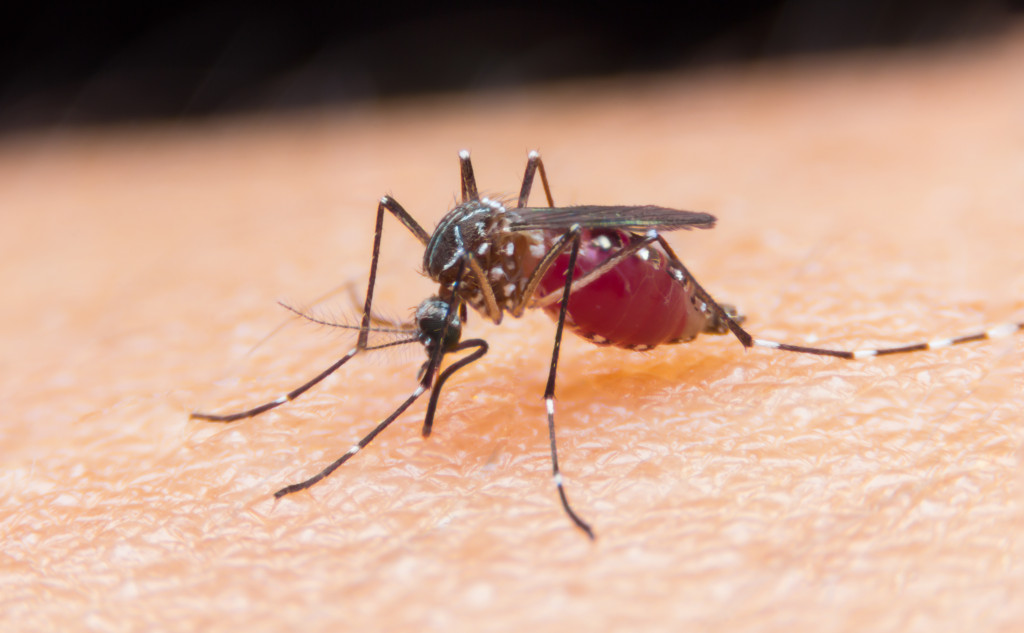- Plant pest-repellent plants like marigolds, mint, and citronella grass to keep insects away.
- Remove standing water and regularly clean up trash and debris to reduce the chances of infestation.
- Trim overgrown bushes or tall grass to remove hiding spots for pests and ensure a healthy garden environment.
- Seal off entry points to your home with caulk or weatherstripping to prevent insects from entering.
Insects can be a real nuisance in your backyard, especially when they start to infest and multiply. Fortunately, there are several steps you can take to prevent insect infestation in your yard and keep these pests away.
From natural remedies like planting certain flowers and herbs to using over-the-counter sprays or traps, there are many ways to protect your outdoor space from bugs. Here are some tips for preventing insect infestation in your backyard and keeping it bug-free.
Consider tree removal
Tree removal to prevent insect infestation can be important in maintaining a healthy backyard. Insects such as ticks and fleas can often attach themselves to branches, migrate to other areas, and cause harm or illness if left unchecked. To properly consider tree removal for this purpose, first, it is important to identify the types of pests present.
Next, service providers should be consulted, and safety measures should be discussed before the actual removal process. This will allow homeowners to make informed decisions regarding what parts of the yard need treatment or elimination while ensuring that necessary work is performed efficiently. In doing so, one can avoid harsh conditions that insects may introduce and reduce potential risks to health due to their presence on trees or around their property.
Plant pest-repellent plants
Planting pest-repellent plants in a backyard is an eco-friendly, low-maintenance way to help control insect infestations. Popular choices include marigolds, mint, and citronella grass. Marigolds have an aromatic scent that helps repel insects, while mint not only smells great and keeps insects at bay but also grows quickly and easily.
Citronella grass is commonly found in commercial bug repellents for its powerful mosquito deterrence effect. All of these plants not only provide natural insect protection from bothersome pests like mosquitoes, but they also add vibrant color and fresh smells to the backyard landscape. Planting pest-repellent plants is important as it can be a less toxic alternative to chemical pesticides that might harm other beneficial organisms in the area.
Keep everything clean
Here are some tips on how to keep your backyard clean to prevent insects:
Remove standing water

Homeowners need to learn how to properly remove standing water from their yards and prevent excess moisture in the soil. Doing this helps reduce the chances of an insect infestation in their backyard. Insects, like mosquitoes, are attracted to standing water, so it’s important to regularly inspect yards for areas that hold water and take steps to mitigate them.
This can include adjusting poor drainage around structures, maintaining gutters, ensuring ditches are debris-free, and filling any low spots on your property. Homeowners should also make sure they do not overwater their lawns, as this adds more moisture to the soil, which can attract insects. These steps will help maintain a healthy backyard environment while minimizing mosquito numbers and reducing the chances of insect infestation in your yard.
Regularly clean up trash and debris.
Keeping outdoor spaces tidy is very important in preventing insect infestations in your backyard. With temperatures rising each year, it is easy for bugs and pests to find their way into small corners or piles of dirt and garbage left behind in your yard. Regularly monitoring your garden, patio, or any other outdoor area removes trash and debris promptly.
This helps to reduce the likelihood of an insect infestation taking hold. Additionally, regular maintenance of the space keeps it inviting to enjoy throughout the year – whether that means playing with children, gardening, or just simply relaxing on a warm summer evening. Overall, keeping outdoor spaces neat and clean is key to ensuring a secure, enjoyable environment for all who use it.
Eliminate hiding spots for pests.
Trimming overgrown bushes or tall grass is an important step to take when keeping pests away from the backyard. Eliminating hiding spots for pests helps reduce the risk of insect infestation, as it removes certain areas where bugs can thrive undisturbed.
By trimming back these plants, homeowners are depriving troublesome insects such as mosquitoes and beetles of their preferred shelter. In the long run, this will lead to a decreased chance of heavy pest infestations. It is also a great way to promote a healthy garden environment, ensuring that gardens remain tidy and free from pesky bugs!
Seal off entry points to your home.

Sealing off entry points for pests is an important factor in preventing insect infestations in home backyards. Caulk or weatherstripping can be used to locate any cracks, gaps, and crevices and fill them with a special product that keeps these intruders out of the house.
This helps protect the backyard from insects such as ants, cockroaches, mosquitoes, and other pests. Weatherstripping works especially well around doors to ensure no critters are entering from outside. Sealing these entry points prevents insects from entering, saving the homeowner time and money on callout fees and pest control products.
These are just a few ways to protect your backyard from pesky insects. By being proactive about prevention, homeowners can keep their outdoor spaces bug-free and enjoyable for the whole family!







